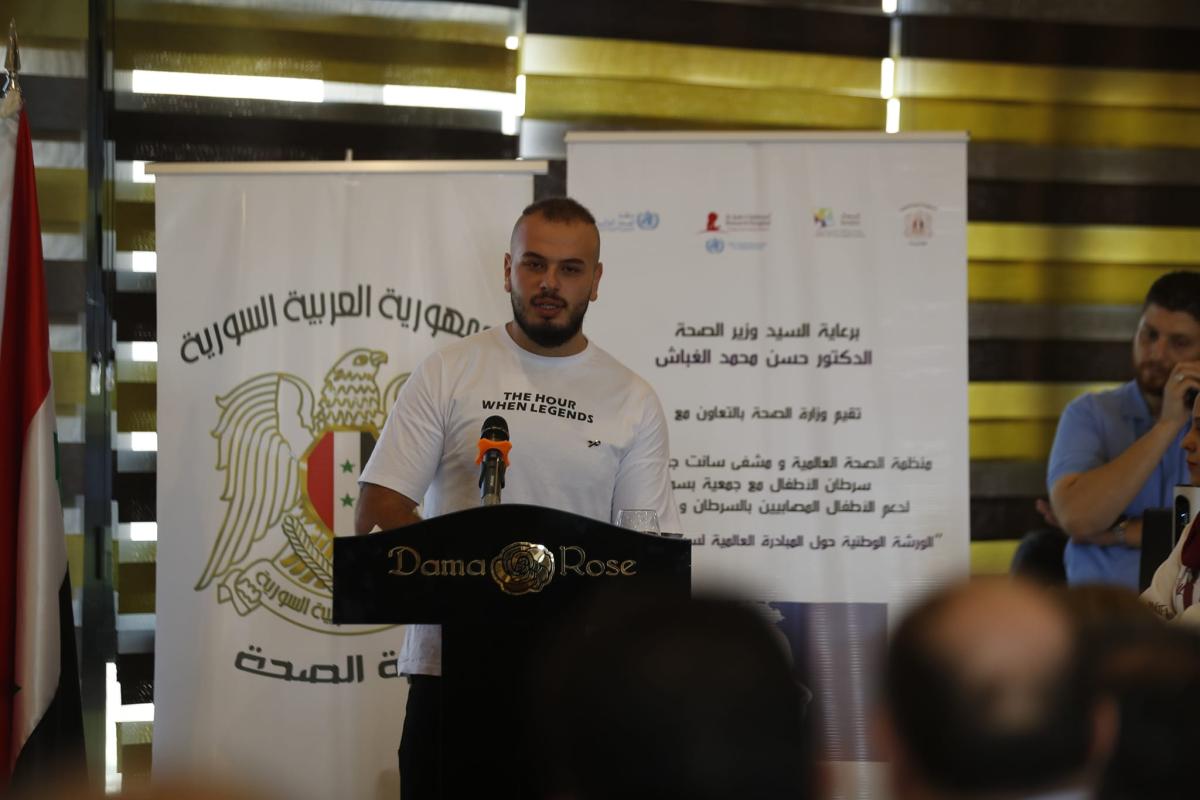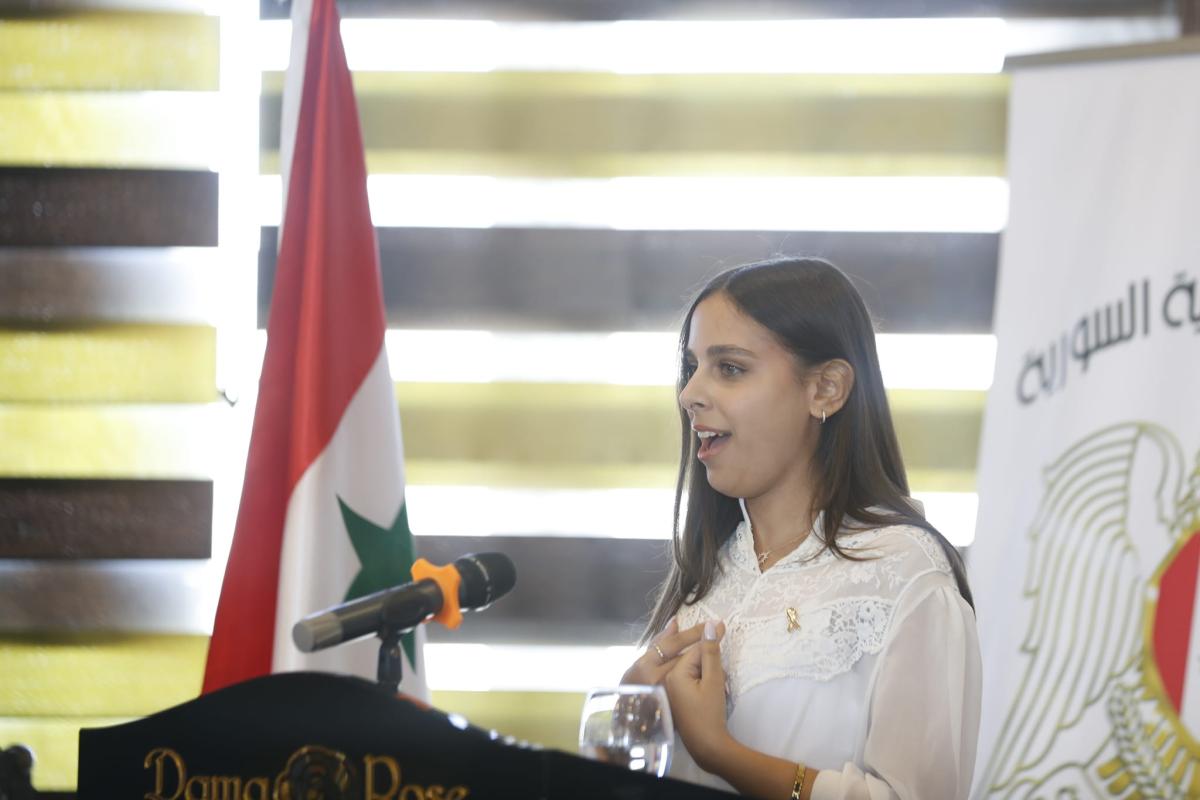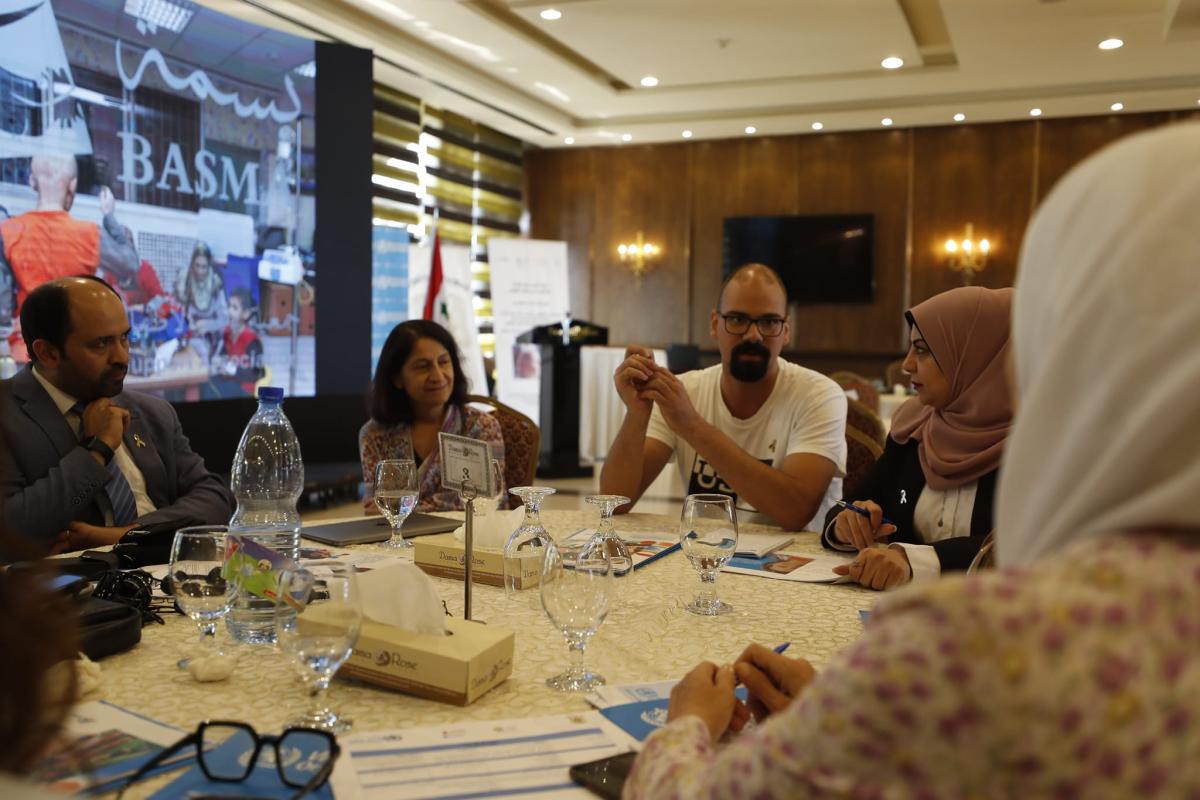World Diabetes Foundation
Challenging the food culture of the Marshall Islands
Civil Society Working Group
26 May 2026
World Health Organization, WHO regional Office for the Eastern Mediterranean Region | 26 Aug 2024
This July, the World Health Organization Regional Office for the Eastern Mediterranean and the Syrian Ministry of Health conducted a two-day national scoping workshop setting priorities for the Global Initiative for Childhood Cancer (GICC) and introducing the WHO Framework for Meaningful Engagement of People Living with NCDs, Mental Health Conditions, and Neurological Conditions.
The multistakeholder workshop convened more than 30 stakeholders, including civil society representatives, government officials within and beyond the health sector, people with lived experience, as well as WHO regional and country representatives.
Meaningful engagement is the respectful, dignified and equitable inclusion of individuals with lived experience in processes and activities creating an enabling environment where power is transferred to people, valuing lived experience as a form of expertise and applying it to improve health outcomes.
In 2023, WHO launched a novel Framework for Meaningful Engagement of People Living with NCDs and Mental Health and Neurological Conditions. The framework is designed to provide practical guidance, norms, and standards supporting WHO and Member States in advancing, co-creating, and enhancing policies, programmes and services through the meaningful engagement of individuals with lived experience of these health conditions.
Facilitating the implementation of the framework, WHO is currently conducting a regional pilot project focused on cancer in several countries across the Eastern Mediterranean Region (EMR). The project aims to promote awareness, uptake, and implementation of the framework through multisectoral and multistakeholder dialogues and workshops. The first scoping workshop in Syria helps shape the approach for further dialogues planned in other countries throughout the region.
The workshop was opened by two young individuals with lived experience of cancer, Maya (22) and Yazan (20), who shared their personal journeys with childhood cancer in Syria. Both faced delayed diagnoses, struggles in accessing treatment, and the additional hardships imposed by the country’s humanitarian crisis situation. Their stories also highlighted great resilience during long travels for treatment and enduring the loss of family members.
Maya and Yazan also discussed the effect of their condition on their day-to-day life, including receiving education in Syria. Both had missed school years and major exams due to the absence of special accommodation in educational facilities, were not excused from exams, or could not get to exam venues due to access barriers.

I was denied entry to the final exam because I couldn’t climb the stairs where the exam room existed. They could have easily made an exception for me. I studied hard while being sick.
Yazan
Both Maya and Yazan also faced significant challenges in how their diagnosis was communicated by their families and healthcare providers. The stigma surrounding cancer in their community, coupled with the absence of proper communication pathways, left families uncertain about how to discuss the condition with their children. This uncertainty also took a toll on their mental health and wellbeing, which was not included as part of their treatment plan.

I heard nurses and doctors say I had cancer. My family never told me what I had. I had to face all the uncertainty alone.
Maya
In the following sessions, participants emphasized the need for a more comprehensive approach to eliminate stigma around cancer. Building joint capacity among healthcare providers, public servants, and people with lived experience was highlighted as a key requirement.

The second day of the workshop focused on action-oriented activities revolving around the six key enablers of the WHO framework on meaningful engagement.
Elevating the voices of people with lived experience through social media and advocating for laws and regulations to ensure adequate accountability and to address incidents of discrimination could help eliminating stigma. Multisectoral and multistakeholder collaboration across education, health and labour sectors as well as with NGOs and people with lived experience are vital to improving health, education, employment outcomes.
Providing people with lived experience with thematic trainings and workshops in communication, advocacy, mental health support and project management is another promising approach to strengthen their capacity. At the same time, ensuring a participatory, inclusive and informative environment during policy design, implementation, monitoring and evaluation and decision-making processes is crucial.
Participants also discussed how lived experience can be highlighted and formalized as professional expertise, for instance through forming alliances or organizations representing people with lived experience and by developing the necessary communication skills. Participants also noted that NGOs could start special programs to engage people with lived experience, with government initiatives building on this engagement.
The participants concluded the workshop by setting priorities for meaningful engagement based on the discussion around the enablers of the framework. Starting a program for people with lived experience lead by the non-government organization BASMA will offer an entry point to address stigma and leverage lived experience as expertise, especially in the areas of mental health support and debunking myths around cancer through social media.